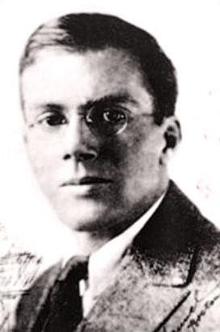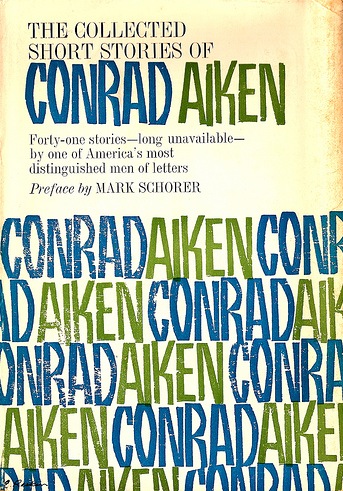
photo © Kasia Sokulska, MiKSMedia Photography
by Dora D’Agostino
Conrad Aiken’s short story ‘Silent Snow, Secret Snow‘ is about Paul Hasleman, a twelve-year-old boy who begins to think, dream and wish for snow. Longing turns to obsession, and the story builds slowly, rising at last to a crescendo of thought and feeling as Paul tries to rationalise the snow’s increasing hold on his everyday life.
Just why it should have happened, or why it should have happened when it did, he could not, of course, possibly have said; nor perhaps would it even have occurred to him to ask.
 There isn’t a lot of action to the plot of this story, but small details about Paul’s state of mind grip the reader. Paul’s teacher first notices a change in him – he’s distracted – and eventually, his mother and father notice. They enlist the aid of a doctor who examines him. Even Paul begins to question his sudden fascination with snow, as he alternates between the world of fantasy and reality: ‘just why it should have become so wonderful, so permanent was a mystery’.
There isn’t a lot of action to the plot of this story, but small details about Paul’s state of mind grip the reader. Paul’s teacher first notices a change in him – he’s distracted – and eventually, his mother and father notice. They enlist the aid of a doctor who examines him. Even Paul begins to question his sudden fascination with snow, as he alternates between the world of fantasy and reality: ‘just why it should have become so wonderful, so permanent was a mystery’.
The struggle Paul feels, fluctuating between these two worlds, is palpable; he is asked to make a choice, and you wonder which he’ll choose. The story then turns into a tour de force of free association, as Paul tries to make sense of his increasingly bewildered state. Aiken thrills us with his keen observations, while managing to keep the reader in suspense, creating a story that is atmospheric, haunting and ominous.
Who knew that snow could ‘seethe’, ‘hiss’ and then ‘roar’? Snow is also a temptress, entreating Paul to join the ‘new world’ with promises: ‘it said peace, it said remoteness, it said cold, it said sleep.’ The snow is keeping a secret, hiding it beneath its incandescent whiteness, and as Paul’s delusions intensify, even the postman’s footsteps take on another meaning:
…his heavy boots … progressively nearer, progressively louder, the double knock at each door, the crossings and re-crossings of the street.
The language Aiken uses to describe the snow is both alluring and discomfiting:
…whispering and hushing, making little triangles of white in the corners between cobblestones, seething a little when the wind blew them over the ground to a drifted corner; and so it would be all day, getting deeper and deeper and silenter and silenter.
 ‘Silent Snow, Secret Snow’ is reminiscent of Edgar Allen Poe’s eerie and fatalistic tales. Perhaps that’s not surprising. In an interview in The Paris Review, we discover that, when Aiken was growing up, Poe was his favourite writer. In fact, ‘Silent Snow, Secret Snow’ is considered a classic horror story and can be found in many anthologies.
‘Silent Snow, Secret Snow’ is reminiscent of Edgar Allen Poe’s eerie and fatalistic tales. Perhaps that’s not surprising. In an interview in The Paris Review, we discover that, when Aiken was growing up, Poe was his favourite writer. In fact, ‘Silent Snow, Secret Snow’ is considered a classic horror story and can be found in many anthologies.
But what did the author do to accomplish such a feat? Conrad Aiken, who was born in 1889 in Savannah, Georgia, is primarily known as a poet. He won a Pulitzer Prize and a National Book Award for his collections of poetry, but he also wrote literary criticism, short stories and novels. It’s astounding the amount and variety of work he produced. Yet despite his many accomplishments, you hardly hear of Aiken any more. During his lifetime, he never gave public readings, and he assiduously avoided the spotlight, losing chances of awards along the way. But, according to Benjamin DeMott in an article for the Saturday Review, there’s another reason why Aiken never became popular. He was accused of being old fashioned; of failing to adopt a more natural sound of speech in his writing:
Aiken has often flown against [dominant taste], writing heavy music, laying out gorgeous sound, providing no clear ‘speaker’, no definable ‘dramatic situation’, and pruning no modifiers.
It is ironic that the very thing that some faulted Aiken for is what is celebrated today. Aiken never let fashion dictate his work, and he always felt that a ‘short story is a form of a poem’. The rhythms of poetry can certainly be heard in ‘Silent Snow, Secret Snow’. Remove Aiken’s lyricism, and the snow wouldn’t be as transfixing for the reader as it is for Paul.
In his interview for The Paris Review, Aiken said that ‘Silent Snow, Secret Snow’ was ‘a projection of my own inclination to insanity’. Much of Aiken’s work is preoccupied with the psyche, perhaps because mental illness ran in his family, and even Freud called Aiken’s writing a ‘masterpiece of analytical introspection’.
I first read ‘Silent Snow, Secret Snow’ as an adolescent, and I applauded Paul for wanting to live in a fantasy world, and for attempting to keep this world a secret from his parents. I identified with him because I was always accused of living in another world myself, of daydreaming. So now, as well as discovering in the story Aiken’s preoccupation with mental illness, I see the story as an exploration of the power of fantasy. For us, as readers and writers, these secret worlds are where we nourish our own imaginations.

